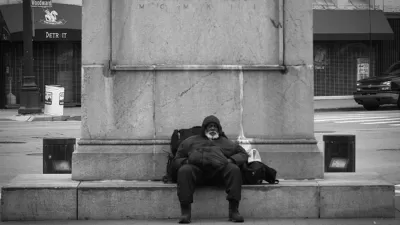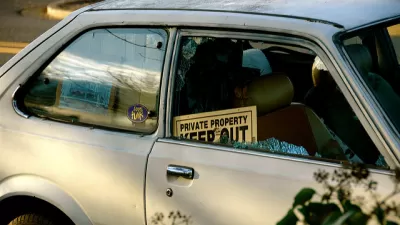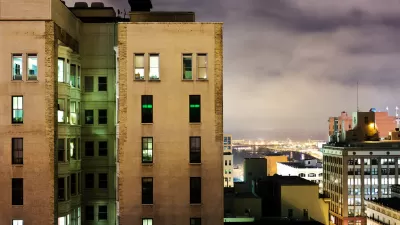Detroit plans to build 300 tiny homes on empty lots to help shelter the city's homeless.

The city of Detroit plans to build tiny houses to shelter its homeless, according to a story by Weston Williams in the Christian Science Monitor. "Tiny houses have become a fad in the United States. These homes, which have only a fraction of the square footage of traditional houses, are cheap to build, easy to maintain, and energy efficient." This makes tiny houses a logical option for a cost-effective way to tackle homelessness. Williams reports that, "Detroit is the latest city to build a community of tiny houses to provide homeless and low-income people with affordable housing."
These homes are to be built on empty lots within the metro Detroit area. "Since tiny houses are 500 square feet and smaller, they don't cost much to heat and are cheaper to rent than the average home with more than 2,500 square feet of space," the story says.
This community will not face the same obstacles many tiny home builders have faced. Because the city is on board with the plan, they will not be zoned out of reach of downtown transport options and employment as has happened to other tiny house communities around the country. The first seven of these homes are scheduled for completion by the end of this year.
FULL STORY: Tiny town: Detroit agency aims to bring city's homeless out of the cold

Planetizen Federal Action Tracker
A weekly monitor of how Trump’s orders and actions are impacting planners and planning in America.

Chicago’s Ghost Rails
Just beneath the surface of the modern city lie the remnants of its expansive early 20th-century streetcar system.

San Antonio and Austin are Fusing Into one Massive Megaregion
The region spanning the two central Texas cities is growing fast, posing challenges for local infrastructure and water supplies.

Since Zion's Shuttles Went Electric “The Smog is Gone”
Visitors to Zion National Park can enjoy the canyon via the nation’s first fully electric park shuttle system.

Trump Distributing DOT Safety Funds at 1/10 Rate of Biden
Funds for Safe Streets and other transportation safety and equity programs are being held up by administrative reviews and conflicts with the Trump administration’s priorities.

German Cities Subsidize Taxis for Women Amid Wave of Violence
Free or low-cost taxi rides can help women navigate cities more safely, but critics say the programs don't address the root causes of violence against women.
Urban Design for Planners 1: Software Tools
This six-course series explores essential urban design concepts using open source software and equips planners with the tools they need to participate fully in the urban design process.
Planning for Universal Design
Learn the tools for implementing Universal Design in planning regulations.
planning NEXT
Appalachian Highlands Housing Partners
Mpact (founded as Rail~Volution)
City of Camden Redevelopment Agency
City of Astoria
City of Portland
City of Laramie





























